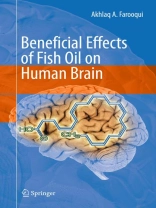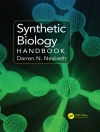It is becoming increasingly evident that the deficiency of n-3 fatty acids in diet is not only associated with cardiovascular diseases, but also involved in stroke, epilepsy and other neurological and neurodegenerative diseases, such as Alzheimer disease, Parkinson disease, and peroxisomal diseases.
In his newest book, Beneficial Effects of Fish Oil on Human Brain, Dr. Akhlaq A. Farooqui expands on the status and therapeutic importance of n-3 fatty acids (major components of fish oil) and their mediators in normal brain and those with neurodegenerative and neuropsychiatric diseases. Farooqui presents the benefits of n-3 fatty acids on Western diet, which is enriched in n-6 fatty acids (major components of vegetable oil) and may promote the above neurological disorders. The book will present readers with cutting edge and comprehensive information on metabolism and roles of neural membrane n-3 fatty acids.
Зміст
Fish Oil and Importance of Its Ingredients in Human Diet.- Transport, Synthesis, and Incorporation of n–3 and n–6 Fatty Acids in Brain Glycerophospholipids.- Release of n–3 and n–6 Fatty Acids from Glycerophospholipids in Brain.- Oxidation of Arachidonic and Docosahexaenoic Acids and Neurochemical Effects of Their Metabolites on Brain.- Roles of Docosahexaenoic and Eicosapentaenoic Acids in Brain.- Status of Docosahexaenoic Acid Levels in Aging and Consequences of Docosahexaenoic Acid Deficiency in Normal Brain.- Status and Potential Therapeutic Importance of n–3 Fatty Acids in Neurodegenerative Disease.- Status and Potential Therapeutic Importance of n–3 Fatty Acids in Acute Metabolic Trauma and Neurotraumatic Disorders.- Status and Potential Therapeutic Importance of n–3 Fatty Acids in Neuropsychiatric Disorders.- Status and Potential Therapeutic Importance of n–3 Fatty Acids in Other Neural and Non-neural Diseases.- Perspective and Directions for Future Development on the Effects of Fish Oil Constituents on Brain.












